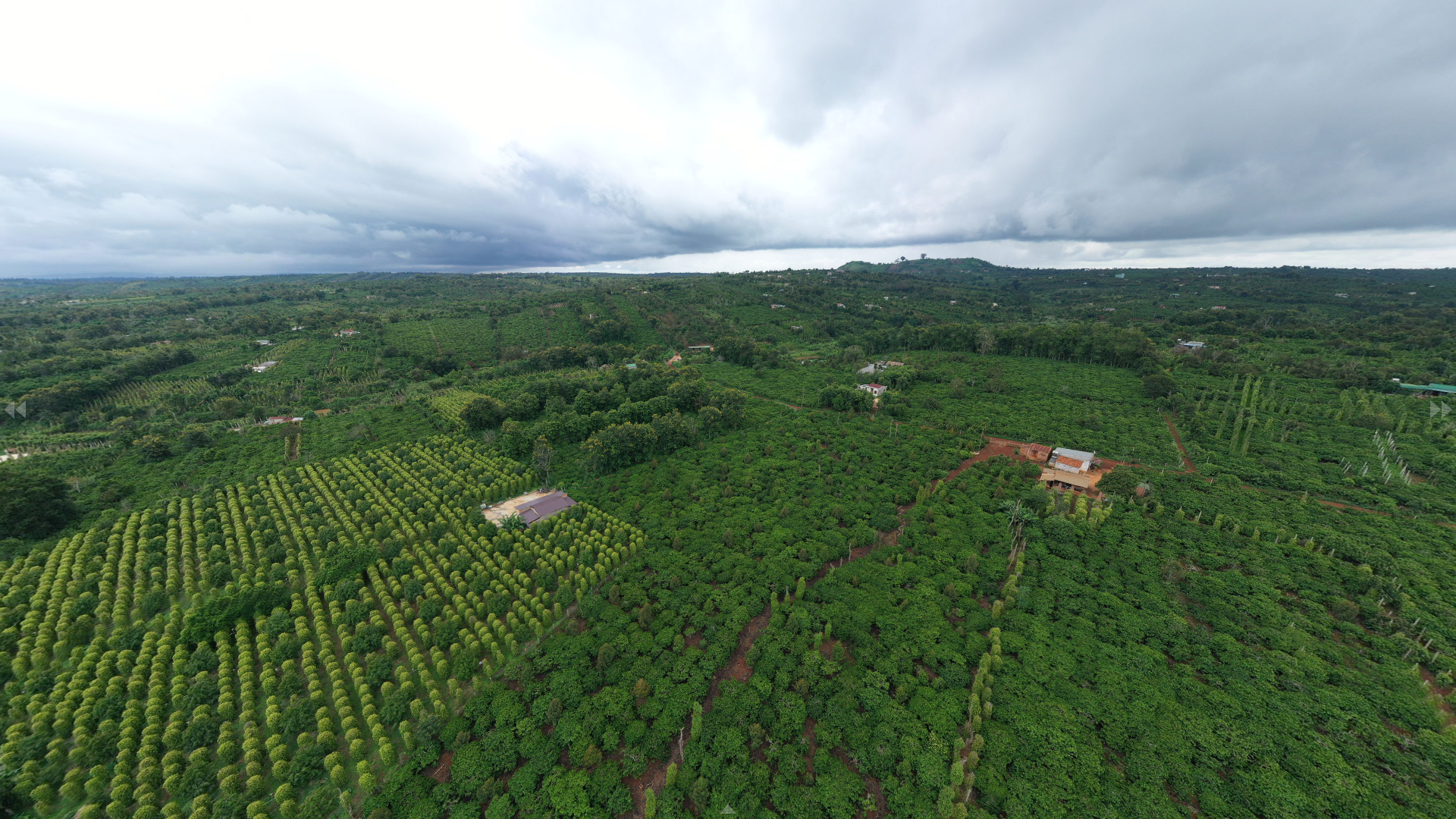
About
The Krông Năng Landscape, located in Đắk Lắk province of Vietnam’s Central Highlands, is a key hub for high-quality coffee production and biodiversity. Spanning over 61,000 hectares, it includes 23,132 ha of coffee, 3,665 ha of pepper, 5,167 ha of fruit trees, and 8,108 ha of forest. In 2021, the district launched the Krông Năng PPI (Production – Protection – Inclusion) Compact as a public-private partnership to transform the area into a large-scale sustainable sourcing landscape by 2025. The Compact focuses on three goals: conserving 5,675 ha of natural forest and reforesting 431 ha; ensuring 85% of coffee and intercropping areas adopt sustainable practices with 70% of coffee and 55% of non-coffee outputs connected to traceable supply chains; and increasing income by 15–20% for 42% of farming households, with at least 45% women participating in training.
This initiative began with a pilot project in a 5,200 ha area across parts of Ea Tan, Ea Toh, and Dlie Ya communes—selected for its unique sourcing model, where coffee is entirely procured by Simexco through cooperatives and local traders. The pilot zone, home to 30% ethnic minority populations and a 10% poverty rate, faced urgent sustainability challenges. These included excessive chemical use (70% of farms overused fertilizers and 60% overused or used banned pesticides), and severe water issues—17% of farms lacked water access, and all farms used about 30% more irrigation water than recommended, contributing to yield losses of up to 30% in dry years like 2016 and 2019.
As a pilot site for the EU Deforestation Regulation (EUDR) database, Krông Năng also leads in traceability and deforestation-free supply chain efforts. Through close coordination between government, IDH, private sector partners like Simexco and JDE Peet’s, and civil society, the Compact is setting a model for sustainable agriculture, climate resilience, and inclusive rural development.
